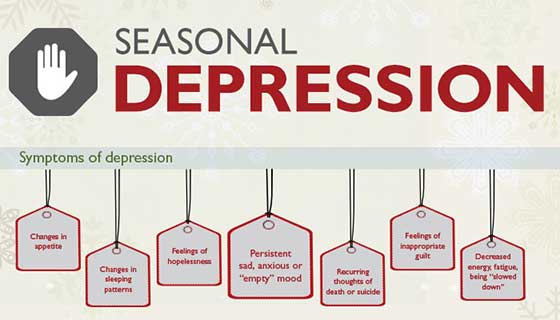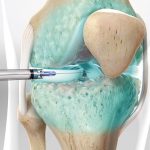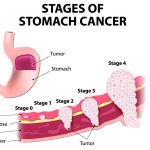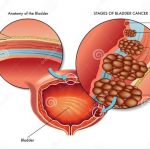What is Seasonal Depression?
Seasonal depression is considered one of the subtypes of depression. It occurs especially depending on the change of seasons. Although individuals have different factors and symptoms, there are certain common points in people with seasonal depression.
For example; This type of depression usually starts and ends at the same time every year. One of the proofs that depression occurs depending on the season is the process it follows.
In seasonal depression, it is observed that the symptoms start in the autumn months and continue throughout the winter. This type of depression, in which the person describes himself as unhappy and weak, can occur depending on individual predispositions, or it can also be seen depending on some hormonal balances in our body.
What are The Causes of Seasonal Depression?
The exact symptoms of seasonal depression are not known. However, some factors that may affect it may be:
-
Biological Clock (Circadian Rhythm):
Decreased sunlight in the fall and winter seasons can cause depression. This decrease in sunlight can affect your body’s biological clock, leading to depressive feelings.
-
Serotonin Level:
Decreased levels of serotonin, a chemical in the brain that affects mood, can cause seasonal depression. Decreased sunlight can also reduce serotonin levels, triggering depression.
-
Melatonin Level:
Changes in season can disrupt melatonin balance, which affects sleep patterns and mood.
What are The Common Symptoms of Seasonal Depression?
- Feeling exhausted
- Feeling sleepy all the time / wanting to sleep / sleeping all the time
- Eating more than usual
- Sudden weight gain
- Eat a carbohydrate-rich diet
- Staying away from social environments
- Focus problems
- Feeling hopeless, worthless, or guilty
- Frequently thinking about death and suicide
What are The Differences Between Spring Depression and Autumn Depression?
-
Autumn and Winter Depression:
Seasonal Depression can begin after summer, in the fall and winter. There may be some symptom differences between spring depression and depression.
Symptoms of autumn depression can be listed as follows:
- Feeling sleepy all the time or sleeping all the time
- Increased appetite, especially cravings for high-carbohydrate foods
- Weight gain
- Feeling tired, lacking energy
-
Spring and Summer Depression:
Symptoms specific to seasonal affective disorder that begins in the spring/summer, sometimes called spring depression, may include:
- Difficulty falling asleep and staying asleep
- Loss of appetite
- Weight loss
- Restlessness or anxiety
What are The Risk Factors for Seasonal Depression?
- It is possible that people with seasonal depression in their families are genetically more prone to seasonal depression.
- Seasonal depression symptoms may be more severe in people with major depression or bipolar disorder.
- Seasonal depression is more common in people living far north or south of the equator.
- Although it is more common in women than men, it can be said that its symptoms are more severe in men.
- It affects people between the ages of 18-30 more.
Diagnosing Seasonal Depression
Seasonal depression may not be easy to diagnose because its symptoms are similar to other types of depression and mental health problems.
To diagnose seasonal depression, your doctor may perform some examinations:
-
Physical Examination:
Your doctor examines your general health condition. In some cases, depression may be caused by underlying physical health problems.
-
Blood Tests:
Your values are measured with a complete blood count or thyroid test.
-
Psychological Evaluation:
To diagnose depression, your doctor may ask you to report your symptoms, thoughts, feelings, and changes in behavior.
Treating Seasonal Depression
-
Life Changes:
There are many changes we can make in our daily lives to relieve the symptoms of seasonal depression. Moreover, these changes have a preventive effect on depression as well as treatment.
Take Advantage of Daylight as Much as Possible:
- Sit by the window in indoor spaces such as at home or at work.
- Open the curtains and help the room get natural light.
- Try to spend time outside during the day, especially do not miss sunny days.
Starting the day with a walk after waking up in the morning or even a short afternoon walk can be very beneficial. It has been shown that spending time in parks and gardens and being in touch with nature is very effective in reducing the symptoms of winter depression.
Exercise Regularly:
It can be hard to even imagine exercising when one of the symptoms of seasonal depression is low energy and feeling exhausted; You may be waiting for a moment when you will feel better and be more willing to get active and exercise again. However, the more a person does not move and do nothing, the more tired and exhausted he feels, leading to a vicious circle. One of the behavioral interventions of cognitive behavioral therapy in the treatment of depression is to direct the client to be more active to feel better. As the person moves, he or she will begin to experience positive feelings with exercise, making it easier to continue exercising.
Eat Well:
When you feel bad, you may turn to carbohydrate-rich foods, sugary and floury foods. However, it is beneficial to take care to eat a healthier and more balanced diet, especially when experiencing the symptoms of seasonal depression. Foods high in sugar quickly raise your blood sugar and insulin levels and increase your energy, but this increase is temporary. After a short while, your energy level drops rapidly again, leaving you feeling even worse than you did in the beginning.
In summary, although these foods may make you feel good for a short time when you first consume them, the energy fluctuations they cause you will make you more tired, angry and depressed, and may subsequently cause excessive weight gain, making you unhappy in the long run. During this period, it may be a right step to review your eating habits and pay attention to a balanced diet.
Take Care of Your Social Relationships:
When you are in a depressed mood, the last thing you want to do is leave the house or meet someone, and you may tend to isolate yourself. You may avoid social activities during this period. However, this is one of the behaviors that increase depression and puts you in a vicious circle, just like exercise. It would be very correct to take steps before waiting to be willing in this regard. In depression, motivation is backwards; as you take steps, you want to do more things and the pleasure you get from these activities gradually increases. In this way, the vicious circle is broken. Increasing social contact, spending time with family or friends who will support you, or calling and texting your friends even if you cannot go out will improve your mood and help relieve your symptoms.
Do Relaxing Activities:
Since stress and anxiety can increase the symptoms of seasonal depression, it may be beneficial to focus on activities that are good for you and relaxing during this period. It will be good for you to introduce meditative methods into your life such as meditation, breathing and awareness exercises, muscle relaxation exercises, yoga, a hot shower, and reading a book. Establishing a healthy sleep pattern is very important when experiencing symptoms of seasonal depression. Reading a book while listening to calm music and drinking relaxing herbal tea, especially before sleep, can be a good sleep routine that will improve your sleep quality.
Find Something to Look Forward to:
When we feel depressed, we forget the beauty in life, the things that used to excite us, and we lose hope for the future. A study conducted in 2007 shows that thinking about a fun event planned in the future has a positive effect on one’s mood. Grab a pen and paper and create a list of activities you used to enjoy but no longer do. Choose a few and start planning.
This could be a travel plan or a getaway out of town. It could be a concert of your favorite band or a big gathering with your friends. The important thing is that it excites you when you see this event on your calendar!
-
Seeking Professional Help / Medication
Seasonal depression symptoms can sometimes be too severe and severe to make life-changing changes. In this case, it would be correct to get psychological/psychiatric support. According to research, cognitive behavioral therapy, in particular, emerges as one of the most successful methods in the treatment of seasonal depression.
Cognitive Behavioral Therapy:
- Identify and change negative thoughts and behaviors that may make you feel worse,
- Learn healthy ways to cope with seasonal depression by reducing some avoidance behaviors and planning activities,
- It can help you learn how to manage stress more effectively.
In addition, antidepressants used in the treatment of depression are one of the first treatment methods used in the treatment of seasonal affective disorder. Medication can also be used as a preventive treatment for seasonal depression, in which case your doctor may recommend starting the medication before the fall, using it throughout the winter, and continuing after the symptoms subside. It is also important to keep in mind that it may take a few weeks for antidepressant medications to show their effects.
-
Light Therapy
Light Therapy or Bright Light Therapy has been used successfully to treat seasonal depression for many years. It is also known as phototherapy.
During light therapy, the person must sit in front of a special lamp called a light box that simulates sunlight and be exposed to a very bright light from this lamp for at least 20-30 minutes, especially in the early hours of the day. It is thought that this light may improve seasonal depression by stimulating the brain to reduce melatonin production and increase serotonin production. It has been observed that this treatment regulates the person’s circadian rhythm, increases the effect of antidepressant medications and leads to improvement in sleep quality.
Generally, the treatment begins to show its effect after 1-2 weeks and symptoms regress. Most people can safely use this treatment, except for people with eye damage or those who are very sensitive to light. However, it may be useful to remember that, although very rare, it may have side effects such as eye pain, irritability, blurred vision and headache, and to talk to your doctor about the suitability of this treatment for you.
As a result, the severity and frequency of seasonal depression symptoms may vary from person to person, and the treatment you receive will depend on how much your condition affects your daily life. If the symptoms persist at the same intensity all day long despite making vital changes and continue for more than 2 weeks, severely impair your functionality and negatively affect all areas of your life, please do not forget to get professional support.
How to Get Over Seasonal Depression?
You may also be wondering about strategic methods you can implement to support your depression treatment. Some answers we can give to the question “What is good for seasonal depression?” are as follows:
If You Are Experiencing Winter Seasonal Depression:
- Getting as much sunlight as possible may be good for you. Spend time by a sunny window and take a walk during the day.
- Take light therapy lamps into your home and expose yourself to light for as long as your specialist deems appropriate.
- You can wear colorful clothes.
- You can support your immune system to protect yourself from winter diseases.
If You Are Experiencing Summer-Type Seasonal Depression:
- It may be beneficial for you to spend time in dark and dimly lit environments and prefer cool environments.
- You can spend less time outside.
If We Need to Give Suggestions for Two Types:
- Maintain your sleep routine and go to sleep and wake up at regular times.
- Eat a healthy and balanced diet and avoid excessive carbohydrate consumption.
- Avoid reading and watching news with negative content such as crimes, murders and disasters.
- Do not stay away from your social circle.
- Incorporate love and positive thinking into your life.
- Take advantage of yoga and meditation.






